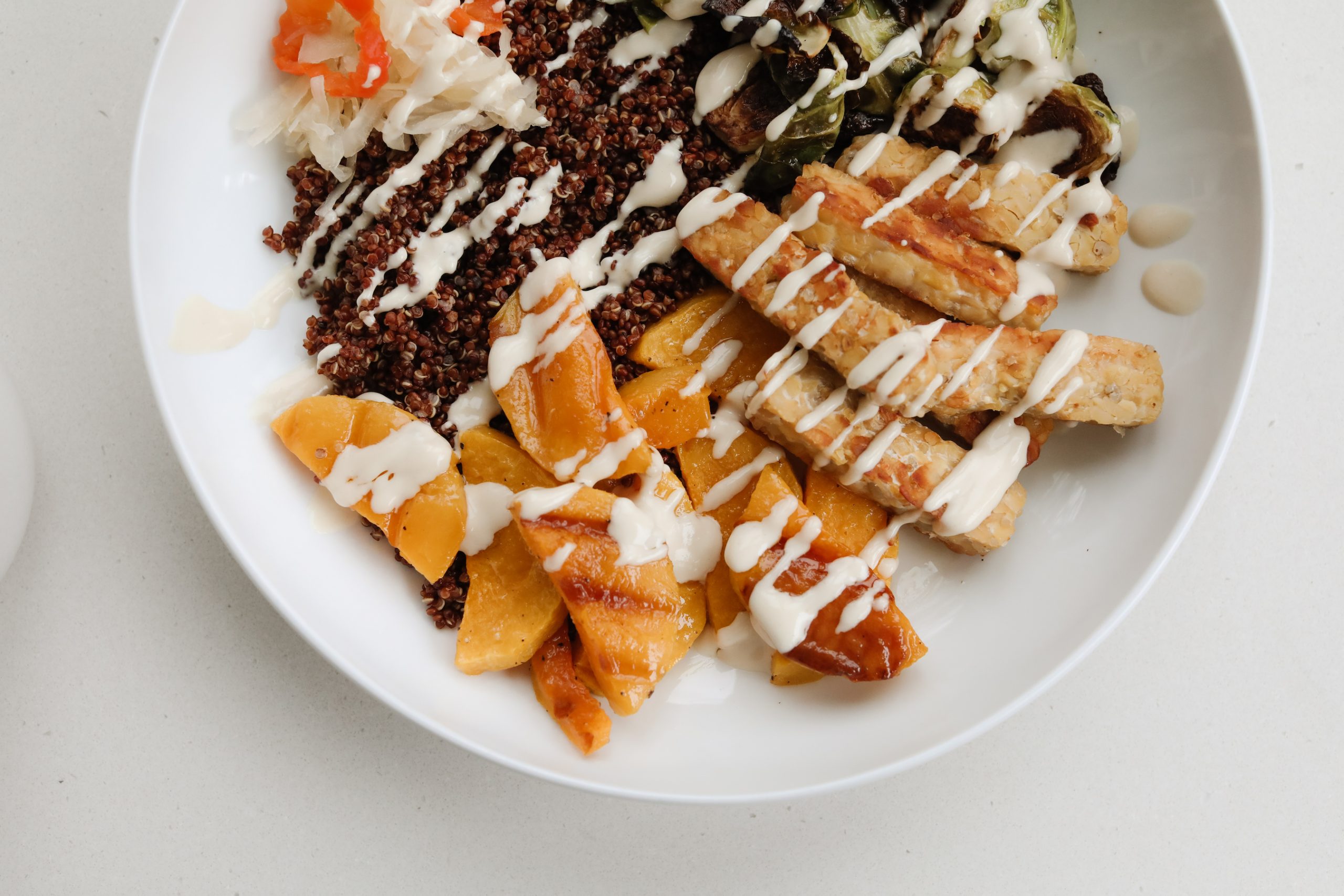9 Best RD-Approved Nut & Seed Butters with Plant-Based Protein
Nut and seeds butters are usually on the grocery list of every plant-based eater. They are rich in healthy unsaturated fats, and they are also packed with protein. And don’t let the word “butter” fool you. Nut and seed butters contain just nuts and seasonings and are completely vegan.
Despite the name, nut and seeds butters are definitely a health food. Besides the protein and healthy fat, they contain many other beneficial nutrients, like Vitamin E, fiber, potassium and magnesium.
But every nut and seed is a little bit different—some have more protein than others and they all have their own unique taste. This list delves into the top 10 seed and nut butters and why you may want to consider each.
Whatever you choose, it’s important to read the nutrition facts label first. Some nut butters include added sugar, hydrogenated oils, flavors and other additives. Choose a variety that has just nuts or seeds and some salt (unsalted is fine too, but it’s a little less tasty).
Below is a list of my favorite nut and seed butters.
1. Peanut butter
7 grams of protein in 2 tablespoons
Believe it or not, peanuts are actually a legume and not a nut. (I know, mind blown.) Peanut butter is the most traditional of the list and it also has the most protein. With 8 grams in two tablespoons, peanut butter should be part of your plant-based diet.
But not only that, peanut butter also has other nutrients, like niacin, folate, Vitamin E, magnesium, zinc and iron, to the diet. And with plenty of healthy unsaturated fats, it’s no wonder that research suggests that eating peanuts contributes to appetite control.
Look for a “natural” peanut butter to ensure that the food is free of any unnecessary additives. And don’t worry if the natural variety has oil sitting at the top. Peanut butter is made from grinding peanuts and the oil separation is completely normal. Just stir and enjoy.
Try these Peanut Butter Pretzel Date Balls

2. Pumpkin Seed Butter
8 grams of protein in 2 tablespoons
Pumpkin seeds may be synonymous with autumn in your head, but the high protein content may make you want to consider them all year round. Made from either raw or roasted pumpkin seeds, this butter has 8 grams of protein in a 2-tablespoon serving. It also has plenty of magnesium, manganese, Vitamin E and iron.
Pumpkin seed butter may not be easy to find, but the good news is that you can make your own version at home. Unlike tahini or sunflower seed butter, pumpkin seed butter has a mild taste.
3. Almond Butter
7 grams of protein in 2 tablespoons
Almonds are a great option for anyone who is allergic to peanuts. This tree nut has plenty of beneficial nutrients, like vitamin E, magnesium, manganese, and fiber.
Almonds are rich in magnesium, which aids in the production of energy in the body. Magnesium also supports a healthy immune system. And the Vitamin E in almonds is good for the skin–research has shown that eating two (one ounce) servings of almonds per day may help reduce wrinkles and skin pigmentation.
Plus, almonds are a heart healthy food that have been linked to lowering the risk of heart disease.
Try this Vegan Baked Oatmeal with an ooey-gooey almond butter center.

4. Sunflower Seed Butter
7 grams of protein in 2 tablespoons
Sunflower seed butter, also known as sun butter, comes from a seed. It’s very popular among people who have peanut and tree nut allergies. And it has the same amount of protein as almond butter, with 7 grams per 2 tablespoons. Sunflower seeds are also full of Vitamin E, Vitamin B6, magnesium, phosphorous and zinc.
The taste of sunflower seed butter is a little different from peanut or almond butter, but it’s a matter of personal preference. Also, this type of “butter”has a higher price tag that more traditional nut butters.
Try adding sunflower butter to oatmeal.

5. Tahini
7 grams of protein in 2 tablespoons
This is probably the only butter where the seed isn’t actually in the name. Tahini is made from ground up sesame seeds, and it’s a main ingredient in hummus. It’s also used as a dressing in other dishes, like a falafel salad.
Unlike peanut butter and almond butter, you may not eat tahini right out of the jar, but it still serves up plenty of protein. A 2 tablespoon serving has 7 grams of protein. Tahini also has Vitamin E, fiber, B vitamins and calcium.
Use tahini as a nut butter replacement in Tahini Maple Oat Bites or add it to a salad dressing for a creamy nutty taste.

6. Pistachio Butter
6 grams of protein in 2 tablespoons
Pistachio butter is not as common as the other foods on this list, but it’s tasty nonetheless. Two tablespoons have 6 grams of protein and antioxidants, like lutein and zeaxanthin, both of which have been proven to be helpful for eye and brain health.
Pistachio butter has a minty green hue. And research suggests that eating pistachios as a snack can be part of a successful weight-loss regimen.
7. Cashew Butter
5 grams of protein in 2 tablespoons
Plant-based eaters are no strangers to cashews. These neutral and fatty nuts make a delicious plant-based “cream” and serve as the base for faux cheeses and milks. But you may be unfamiliar with cashew butter.
When cashews are ground, they become a thick, nutty and delicious butter with a neutral flavor. They are slightly lower in protein than other nuts, with 5 grams per 2 tablespoon serving. They also contain vitamins and minerals, like calcium, iron, magnesium, potassium and zinc.
And more good news– research suggests eating cashews may raise HDL (good) cholesterol levels and protect the heart.
8. Walnut Butter
4 grams of protein in 2 tablespoons
Walnuts have the highest amount of a plant-based omega-3 fatty acid called alpha-linolenic acid (ALA). This unsaturated fat has been linked to brain and heart health, making walnuts a good-for-you option.
Walnut butter is thick, velvety and, well, buttery. It’s a little lower in protein, with 4 grams per 2 tablespoons, but walnuts also have fiber and magnesium [Related: Is Magnesium Good For Athletes?]. There’s also ample research on the benefits of walnuts for heart health, brain health, gut health and digestive health.
9. Pecan Butter
3 grams of protein in 2 tablespoons
If you’ve never had pecan butter before, you are missing out on this nutty goodness. Pecans have a soft and slightly sweet consistency, so they blend up into smooth and rich nut butter.
Pecans have fiber, vitamin A, vitamin E, folic acid, calcium, magnesium, phosphorus, potassium, several B vitamins, zinc and plant compounds called phytochemicals, which have been linked to reducing the risk of certain diseases. You can make your own pecan butter with a food processor, pecans and a dash of salt. Might I also suggest adding a teaspoon of cinnamon?







